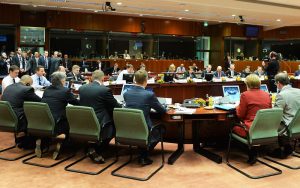Dear Writers, Readers, Supporters,
A very challenging year slowly comes to an end, and we wanted to take the opportunity to reflect a bit on this past year.
2020 has for sure had its ups and downs – but there is always a silver lining, even in the most challenging moments.
For us at Quo Vademus, being able to go live with our website has been this silver lining. This got us one step closer to making our dream come true of founding our own think tank and creating a platform for the youth to give them back their voice.
We say thank you!
Overall, we can say that we were overwhelmed by the positive feedback and the support we received. Quo Vademus started as an idea of two young people who wanted to make a difference in this world. Never would we have dreamed of actually getting so much support on this journey and finding so many young, motivated and talented young writers.
Let’s talk numbers!
Since the official launch of the website in October 2020, we received more than 150 contribution requests, published more than 35 articles from 15 different authors (more are still under review) and developed a constant, albeit small, online readership. Our articles have been reaching about 20.000 people around the world.
The topics of our published articles range, amongst others, from human rights, international security, political theory, to the implications of Covid-19 and cover the Middle East, the EU and the European Neighbourhood, the Americas as well as Central Asia.
Stay tuned for more!
We are more than grateful for the support we received from our writers, readers and contributors. Quo Vademus would be nothing without you.
In the upcoming year, we are looking forward to starting new exciting projects – stay tuned and get ready to be involved!
As for now, we at Quo Vademus want to wish you a great start into the new year 2021, and we are looking forward to sharing more interesting articles, analyses and opinions as well as new projects with you in the next year.
Take care and stay healthy and safe,
Gabriela and Lion
The Founders







Be First to Comment